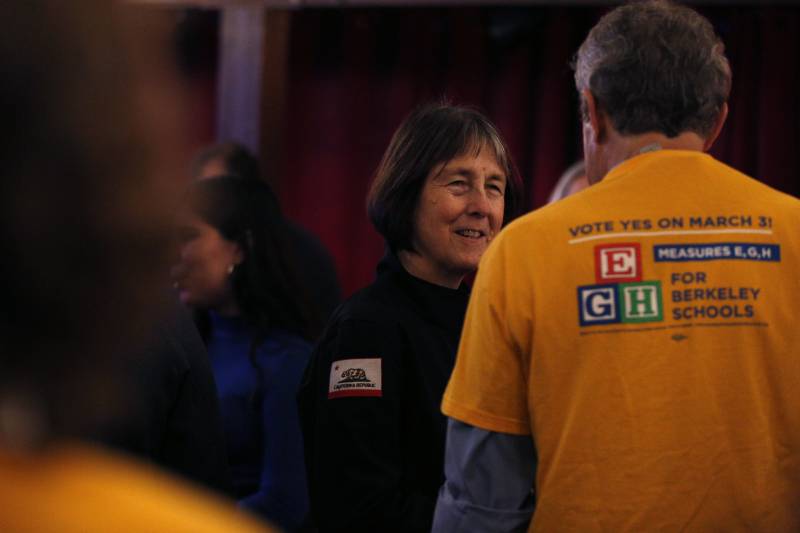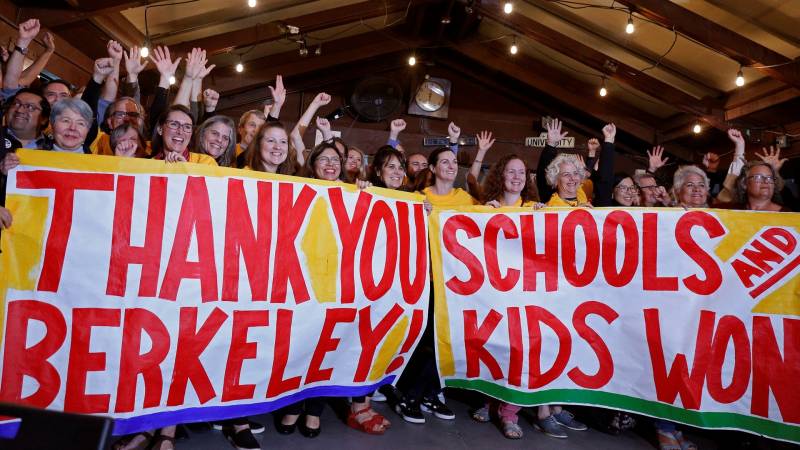Updated Wednesday, 7:30 a.m.
Three school funding measures in Berkeley seemed likely to pass by wide margins, in a show of the city's consistent willingness to tax itself to support public education. Measures E, G and H — which all appeared on Tuesday's ballot — were touted as a three-in-one package to support a raft of school district needs: teacher salaries, school construction and facility maintenance.
“This is the community saying we support Berkeley public schools. We support our teachers. We support staff that work in our schools. And we want to make sure that we keep our teachers here,” said Jenny Wong, Berkeley city auditor and a parent of two Berkeley High School students. "I’m just delighted to see this kind of overwhelming support for our Berkeley public schools."
As of Wednesday morning, Measure E was leading by more than 78%, well above the two-thirds majority it requires to pass. If approved, Berkeley homeowners would see an additional cost of 12.4 cents per square foot on their property tax bills, which is anticipated to raise about $9.5 million a year.
For up to date vote counts see KQED's election result page. County election officials generally officially announce whether the measures passed a month after the election.

The measure is one of a growing number of efforts by cities and communities to increase teacher compensation by raising local taxes. With state funding depressed by Proposition 13’s cap on property taxes, Berkeley, like neighboring cities Albany and Alameda, put a parcel tax on the ballot to “address educator recruitment and retention.”


